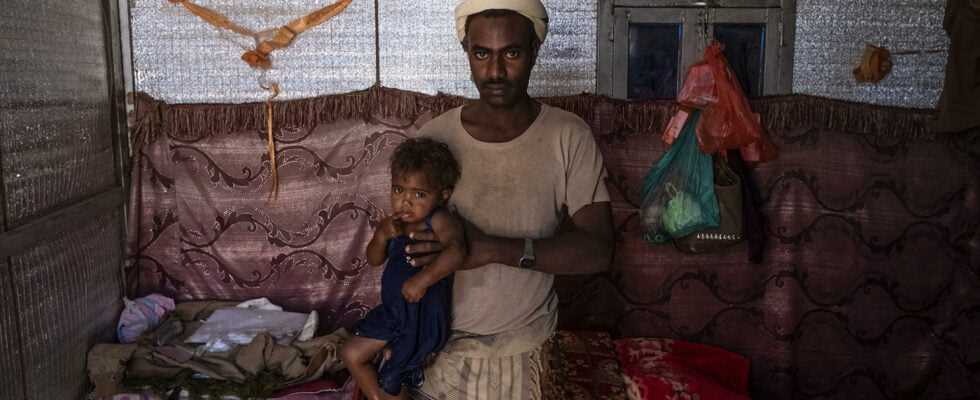ReportThey are called the “muhamasheen”, the “marginalised”, and they would be nearly 3 million. Relegated for decades to the banishment of society, these Yemenis are confined to menial jobs and displaced according to conflicts.
At the entrance to the gorges of the mountains of Al-Jouba, in Yemen, fragile huts made of dead wood, sheet metal and blankets are heckled by a sandstorm. Silhouettes take shape in the distance, swept away by the whitish dust. Children, sometimes naked, frolic in this lunar space. In the distance, a tiger seems to be chasing them, but the animal drawn on a red plaid just ripples in the wind. The wild beast indicates the front door of the house of the leader of this displaced community.
Alerted by the braying of a donkey tied to a stake, Ali Abdou Ali Said comes out of his shelter. At 28, he is the referent of thirty-two families. In 2015, all fled heavy fighting on the west coast, now largely occupied by the Houthis. Of Zaidi allegiance – a branch of Shiite Islam – these Iranian-backed rebels have been at war with the central government since the early 2000s, accusing it of discriminating against them. Taking advantage of the confusion of the “Arab Spring” in 2011, they conquered the north of the country, then territories in the south. A coalition of countries, led by Saudi Arabia, halted their progress in 2015. Since then, the entire country has descended into a war that has already claimed 377,000 lives, according to the UN.
Professions considered dirty
Like more than 1 million displaced people, the small community of Ali Abdou Ali Said has taken refuge in northern Yemen, in Marib, the last bastion still under government control. But they live apart from the others, because of the black color of their skin and their social condition. In Yemen, they are referred to in Arabic as muhamasheen (of the “marginalised”), or even more pejoratively, akhdam (of “servants”). His head protected by a cream-colored turban and dressed in a striped sarong, the young man waves his hand to enter.
In its dark interior with bare floors and aluminum-covered structures, a few colorful cushions decorate a sofa. Sitting with his son astride his lap, Ali Abdou Ali Said explains that he hates this qualifier of muhamasheen: “I don’t consider myself an outsider. I live in this country, in this society, I work there, I am included in it. I find this word racist. We are Yemenis like the others, we shouldn’t be called that anymore. »
In the civil war that has plagued the country for seven years, the muhamasheen are the most vulnerable citizens. They would be more than 3 million in Yemen (out of 30 million inhabitants) to be thus relegated to the banishment of society, rejected by the majority of Yemenis, who claim to be descendants of tribal Arab lineages. For centuries, they have occupied professions that are socially considered dirty or religiously impure. Condemned to become unskilled workers, garbage collectors, porters, butchers or shoemakers, they have also long been associated with the trades of healer, dancer or musician. A real caste system rooted in mentalities.
You have 77.64% of this article left to read. The following is for subscribers only.
